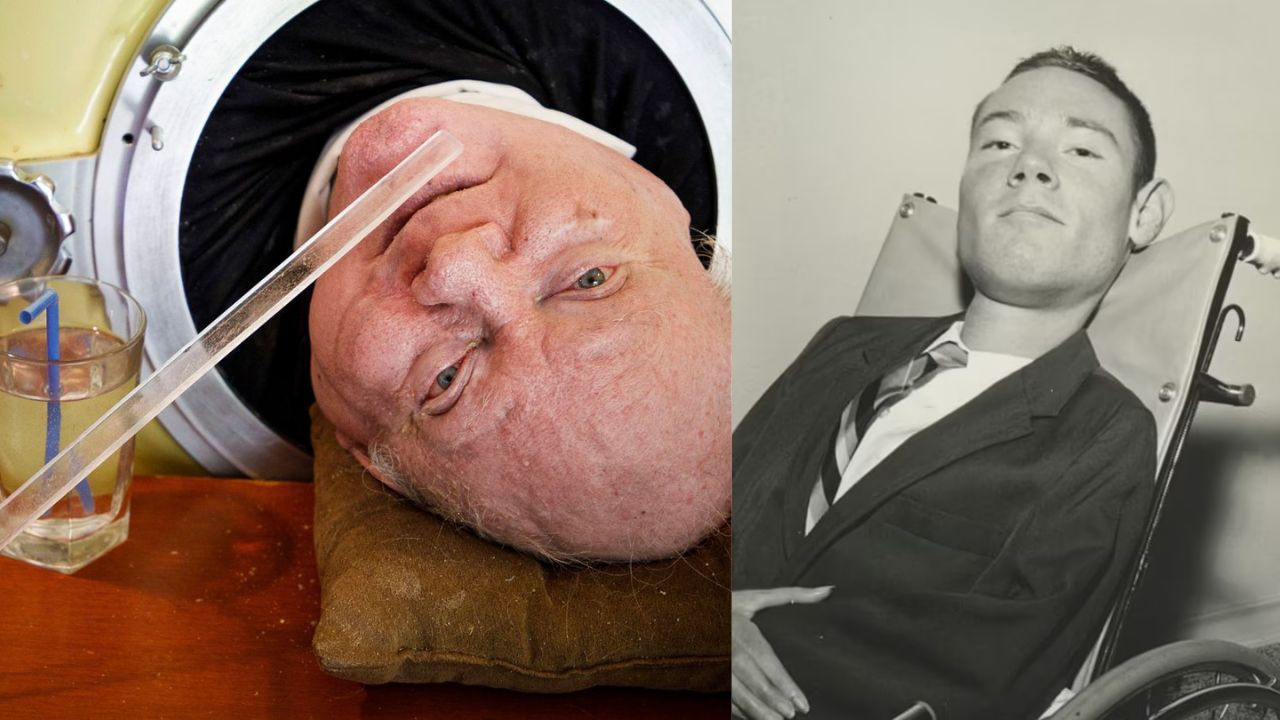At the age of six in 1952, Paul Alexander contracted polio, resulting in paralysis from the neck down. Due to his inability to breathe independently, doctors placed him in a metal cylinder, where he spent the remainder of his life.
Despite his physical limitations, he pursued higher education, earning a law degree and practicing law. He also authored a memoir. A post on a fundraising website announced his passing, referring to him as “Paul Alexander, ‘The Man in the Iron Lung’.” It praised his achievements, highlighting him as an exceptional role model.
In 1952, when he fell ill, doctors in his hometown of Dallas performed a life-saving operation on him. However, the effects of polio rendered his body unable to breathe independently.
To address this, he was placed inside an iron lung, a metal cylinder enclosing his body up to his neck. This apparatus, which he fondly referred to as his “old iron horse,” facilitated his breathing. Bellows within the cylinder expelled air, causing his lungs to expand and inhale oxygen. Subsequently, air was allowed back in, deflating his lungs in a reverse process.
Over time, Alexander gradually acquired the ability to breathe unassisted, enabling him to temporarily leave the iron lung. Like many polio survivors reliant on iron lungs, his prognosis initially appeared grim. However, he defied expectations, living for decades even after the introduction of the polio vaccine in the 1950s, which virtually eradicated the disease in the Western world.
He completed high school and pursued higher education at Southern Methodist University. In 1984, he obtained a law degree from the University of Texas at Austin. Admitted to the bar two years later, he practiced law for several decades.
“In 2020, I spoke to the Guardian and shared, ‘I realized that if I wanted to achieve anything in life, it had to be a mental endeavor,'” he recalled.
During that same year, he released a memoir, a project that reportedly consumed eight years of his life. Despite his physical limitations, he persevered, typing with a plastic stick on a keyboard and dictating parts to a friend.
Although medical advancements rendered iron lungs obsolete by the 1960s, replaced by ventilators, Alexander continued to reside in the cylinder out of familiarity His remarkable tenure inside the iron lung earned him recognition from Guinness World Records as the individual who endured the longest in such a device.

